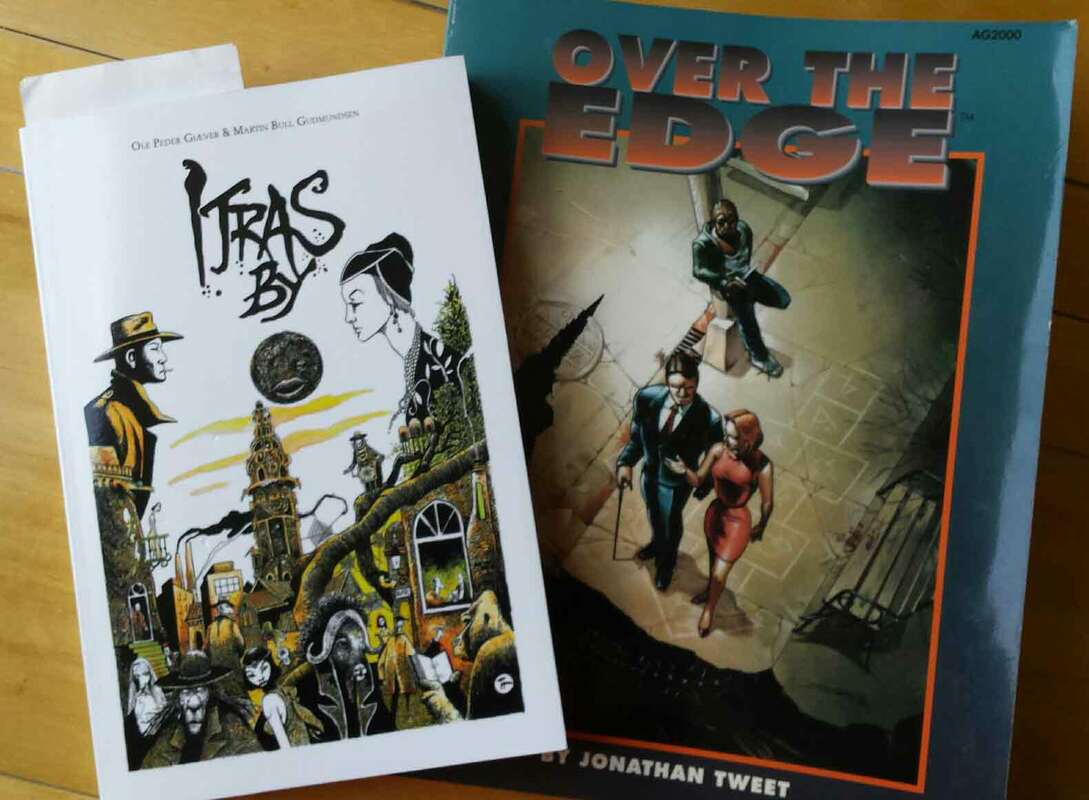|
According to Vincent Baker, a successful RPG will have insights into three areas:
1) RPG design 2) Your game's subject matter 3) human experience "A lot of the time, somebody will come to me and say, 'Vincent, I have this great idea for a game,' and they'll describe one of those insights. They'll say, 'You roll dice like this and you count dice like this.' And I'll say, "Okay, what's that about?' And they'll say, 'I don't know.' Okay, that's fine. You should keep practicing--that's practice to develop that particular insight, but until you also have insight into subject matter and insight into real human nature that will never be a whole game." -Vincent Baker, in his Ropecon 2013 session entitled, "D. Vincent Baker: the Man, Career, and Games"
0 Comments
What I like to tell people is that the process of finding playtesters for your game is a dry run for the process of publishing your game. If you do not have people lining up to playtest your game, that means you will not have people lining up to play your game once they can buy it."
-Vincent Baker, during his talk during Ropecon 2013 entitled "D Vincent Baker: the Man, Career, and Games." "In a roleplaying game, I have a craft as a designer, and then you have a craft as a player. It's a little bit like if I made paintbrushes, right, except that my goal is not just to make a good paintbrush but to make a provocative paintbrush.
And roleplaying games in particular--like, that's the only [art] form I can think of off the top of my head where there're really those two different arts in communication, those two different crafts in communication that way. That's one of the things that really excites me about the form." -Vincent Baker, in his Ropecon 2013 session entitled "D. Vincent Baker: the Man, Career, and Games" "You know the grand unified mechanic? You know the thing where you always roll percentile dice under the skill? Right? That's a bad idea, turns out. That's one conversation we can have, right? The conversation where I say, "Do you succeed at driving the car?" and you roll the dice and say, "Yes." That's a conversation we can have, but that isn't a very interesting conversation. That isn't a conversation that is always interesting for every circumstance.
'Do you hit him with your gun?' 'Yes.' The conversations we can have when we're playing a game are much more various than the single die roll. For instance, you can say to me [referring to Murderous Ghosts], 'What do you hope the ghost doesn't do?' and that's a very different conversation than "Do you successfully drive the car?'" -Vincent Baker in his Ropecon 2013 session entitled, "How to Design an Roleplaying Game that Doesn't Suck" "What your resolution mechanism . . . is actually doing in a game is turning questions into answers. So you have to evaluate what are the questions that come up in this game that I want to be answered, and in what fashion do I want the game itself to answer the question versus relying on a different level of the system. Right? Interpersonal agreement, improv-style discussion, oracular consultation--there are a lot of different levels at which you can turn a question into an answer. And then . . . we build these specific resolution systems to do that."
-+Nathan Paoletta, in Episode 12 of the Design Games Podcast, "Resolution" "Like a movie with only action sequences, it's a poor game--a one-tone game--that drives relentlessly from one conflict to the next."
-Vincent Baker, from "In a Wicked Age . . ." "Playing a character is a fun and funny business. It has two parts, quite entangled: discovering your character, and then revealing her. She'll start out kind of abstract, a half-person made of modes of action (her forms) and impulses (her best interests). It's in action and in interaction that the two multiply into a personality, into a person with history and psychology and positions relative to the others and to the events that happen. Your game is to bring her out and bring her into focus."
-Vincent Baker, from "In a Wicked Age . . ." |
Jason D'AngeloRPG enthusiast interested in theory and indie publications. Archives
April 2023
Categories |

 RSS Feed
RSS Feed